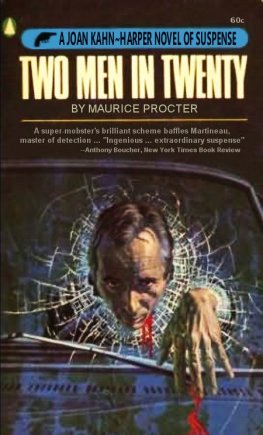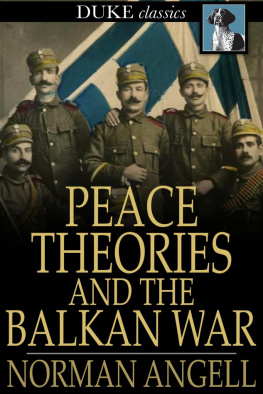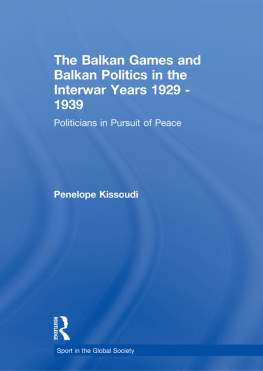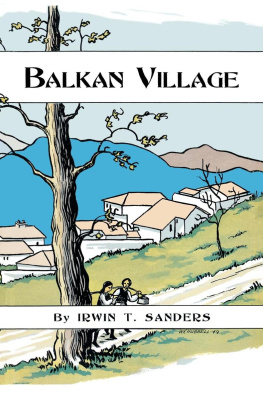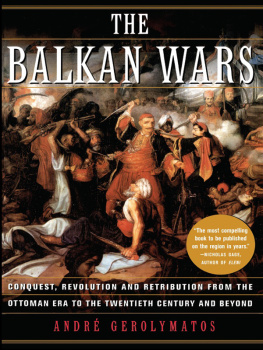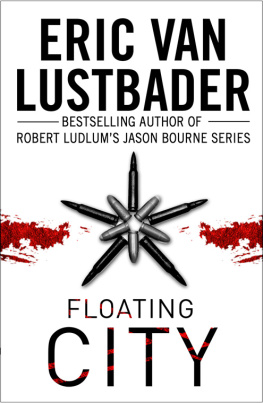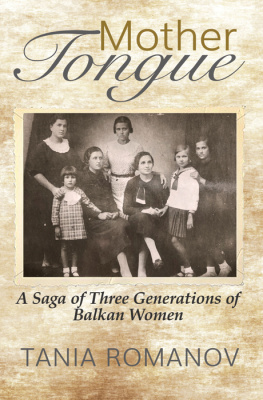SERBIAN AUSTRALIANS IN THE SHADOW OF THE BALKAN WAR
Serbian Australians in the Shadow of the Balkan War
NICHOLAS G. PROCTER
University of South Australia
First published 2000 by Ashgate Publishing
Reissued 2018 by Routledge
2 Park Square, Milton Park, Abingdon, Oxon, OX14 4RN
711 Third Avenue, New York, NY 10017, USA
Routledge is an imprint of the Taylor & Francis Group, an informa business
Copyright Nicholas G. Procter 2000
All rights reserved. No part of this book may be reprinted or reproduced or utilised in any form or by any electronic, mechanical, or other means, now known or hereafter invented, including photocopying and recording, or in any information storage or retrieval system, without permission in writing from the publishers.
Notice:
Product or corporate names may be trademarks or registered trademarks, and are used only for identification and explanation without intent to infringe.
Publishers Note
The publisher has gone to great lengths to ensure the quality of this reprint but points out that some imperfections in the original copies may be apparent.
Disclaimer
The publisher has made every effort to trace copyright holders and welcomes correspondence from those they have been unable to contact.
A Library of Congress record exists under LC control number: 00132606
ISBN 13: 978-1-138-71350-5 (hbk)
ISBN 13: 978-1-315-19868-2 (ebk)
Contents
Events in the Balkans in the 1990s fragmented and recast the lives of the people who lived there. It also had a profound impact upon people living far away who had emotional ties to that region. Nicholas Procters ethnography, Serbian Australians in the Shadow of the Balkan War, is a remarkable study of such a people, as they suffered and struggled through this conflict at a distance, and survived the devastation it brought to their own lives in Australia.
Ethnography has always demanded a level of personal engagement; what is most remarkable about this study is the depth of Procters involvement with a people who, at the time, were distraught, angry and feeling universally stigmatised. Yet it also demands that the researcher is able to disengage, and in this regard too, Procter is a paragon. In this particular field of conflict it would have been all to easy to unbalance, take sides, but Procter keeps his cool. This is not primarily a political study of ethnic groups at war in the Balkans; nor is it a treatise on international human rights; it is not concerned with right, wrong, fault or blame; it is a study from within, a study which traces the imprints that are made by a distant war on the lives of Serbian Australians, on their mental health, and on their ability to maintain civil society.
There is an affinity between ethnographic fieldwork and nursing, particularly as the latter applies to mental health. Both require the creation of a framework of intimacy and respect within which stories may be told, feelings received, and lives revealed. Nicholas Procter comes from a background in psychiatric nursing which he has fed into this research, both as an intellectual foundationhis work is influenced by Barker, Benner and othersand as a practical activity. He is concerned with human suffering, he listens attentively to those Serbian Australians among whom he worked, and together with them he interprets the cultural meanings that make sense of their suffering. As I read this study, and as their lives unfolded, I wondered whether ethnographic work, sensitively handled, might be nurturing in and of itself.
In its anthropological scholarship, the study engages with George Marcus and his insights into the local-global nexus. Procter gives this ethnographic substance but creates an additional nexus with the inner life of his participants. In extending the scope of his enquiry into the psychological and emotional domain he draws firstly on Giddens to explore the sadness and dislocation of Serbian Australians in a global epoch. Secondly, from Gadamer, comes a rigorous scrutiny of his own presuppositions, a reflexivity that extends into his own emotional reactions and into the heart of the methodology.
With these influences, Serbian Australians in the Shadow of the Balkan War is a post-modern text, written in the first-person singular, fiercely reflexive, and always revealing the train of events and interactions that led to the construction of the data. It also conveys the feel of a traditional ethnography, largely through Procters wonderful capacity for description and eye for detail. Describing an episode of vandalism directed against the Serbian community he observes:
An angle grinder or hacksaw had been used to decapitate a life size statue of the allied Second world War Serbian General, Draza Mihalovic. Fine mental dust lay at the foot of the statue. The presence of the dust caught my eye as it glistened in the morning sun.
It is this capacity for immersion in the minutiae that enables Procter to delineate emotional turmoil with such precision.
In its genre this book stands alongside Loring Danforths The Macedonian Conflict: Ethnic Nationalism in a Transnational World, and Zlatko Skrbiss Long Distance Nationalism, further establishing the preeminence of Australian scholarship in the anthropological study of diaspora communities. In common, these works explore different aspects of long-distance nationalism, but of the three, it is Procter who gives the richest insight into the importance of belongingbelonging to a culture, belonging to a placeas a theme which has crucial implications for the mental health of the community in which he worked. In a country whose indigenous peoples remind immigrants of the value of place and belonging, it is not surprising that they should emerge into the centre of Serbian Australians in the Shadow of the Balkan War.
As a study of mental health, this book drives home the point that suffering and wellbeing can only be fully understood in a global context, and its relation to the inner lives of individual people. And it serves to remind us of the cultural resources that communities can draw upon when faced with despair, humiliation, and mistrust. It reminds of the importance of a pride in belonging.
Robert Barrett
Professor of Psychiatry
University of Adelaide
This book examines Serbian Australians living in the shadow of the Balkan war and interprets the way in which their experience has become a health and cultural process of long distance dislocation, suffering and devastation. I began the seminal work for this book as a doctoral student under the guidance of Professors Bob Holton and Tina Koch. At the outset of my studies, I was never completely satisfied that the answers to questions that occupy this book could be found through social science alone. The approach taken generated data through journal writing, interviewing, participant observation, document analysis and the encouragement of people to speak for themselves in their own words about how they felt war in the former Yugoslavia had influenced their feelings, lives and wellbeing. The art and science of nursing soon became a means to inform the many anthropological research interests that I had developed during the course of my journey. It was always easy for me to retain a nursing presence throughout the journey for it provided a depth and means for inquiry and interpretation of the health and wellbeing concerns held by participants. To interpret the situations of Serbian Australians, I brought philosophical hermeneutics of the Hans-Georg Gadamer tradition to my experience of their lives, feelings, attitudes, perspective, history, culture and national identity.





